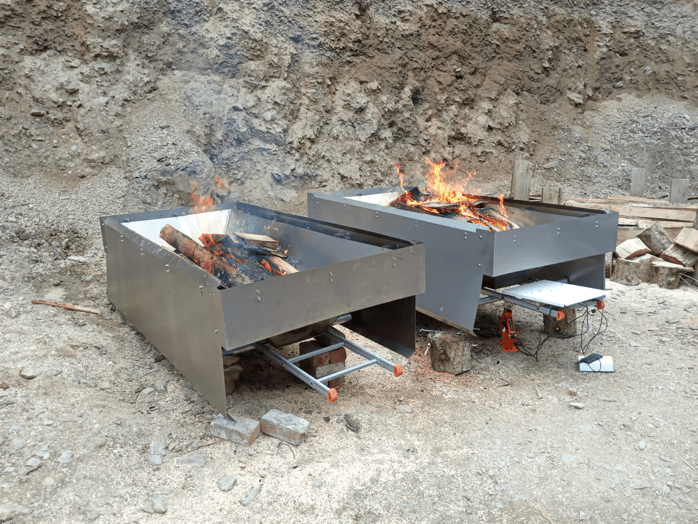Our Vision is to Regenerate Productive Ecosystems and Stop Desertification.
Our Projects
Phase 1
Use of a prototype kiln (Kiln 1) built using reused metal from a local steel workshop in order to make biochar out of wood residues left from previous seasons. The amount of biomass available will be limited (less that 2 tonnes), but the aim at this stage will be to produce biochar for demonstration purposes, in order to have the preliminary results necessary to convince the local council to support our project in initiating phase 2. The organic material available has been identified as:
• Eucalyptus (Eucalyptus sp.) - between 1 and 2 tonnes
• Nettle tree (Celtis australis) - 300 kg
• Mulberry tree (Morus sp.) - 200 kg
• Apricot tree (Prunus sp.) - 50 kg
Pictures of the identified organic material have been provided as part of this post. We are currently working with local landowners to gather more dry organic material for phase 1.
Phase 2
Kiln 1:
Production of biochar from the pruning left after the olive harvest. The vast majority of the organic material to be used during that phase will be Olive wood (Olea europaea) residues from the pruning, which will include small sized (< 10 cm diameter) olive branches. The rest of the olive pruning being traditionally sold as high quality firewood.
Kiln 2:
A new kiln produced with more durable material than the Kiln 1 is expected to be set up at the local council's junkyard in order to pyrolyse all of the wood residues belonging to the council public land. This is still to be discussed with the local council, but the results from the phase 1 will be instrumental to convince the council to be involved in this project. This second kiln will also aimed to be transported to local farmland to perform the function of kiln 1 when needed.
Phase 3
We are expecting to setup more mobile kilns to be spreading in the region to pyrolysis wood residues from the pruning season from local landowners and farmers. We will also approach other waste-intensive industries in the region, such as olive oil mills, to pyrolysis various low-value organic residues existing in extensive amounts. This phase may be supported by the local councils, However we are working towards a business model independent from the political landscape. Around this period, we are planning to start engaging farm lands in other neighbouring regions to provide similar services.

Frequently Asked Questions (FAQs)
General Questions
Sierra Preta is a community initiative focused on regenerating ecosystems and combating desertification in the Sierra Nevada region using BioChar.
BioChar is a form of charcoal produced from organic waste that is used to improve soil health, enhance water retention, and reduce carbon emissions.
BioChar enriches the soil, promotes plant growth, helps retain water, reduces the need for chemical fertilizers, and sequesters carbon, thereby reducing greenhouse gases.
Participation and Workshops
Our workshops cover the production and use of BioChar, the benefits of BioChar for soil and the environment, and hands-on training in BioChar techniques.
Please contact us directly for the latest schedule and to register for upcoming events.
Kilns and Equipment
Yes, we offer kilns for use by community members. Please contact us to arrange a time and discuss the logistics.
Research and Development
You can contribute by sharing your BioChar application results, participating in studies, or providing financial support for our research initiatives.
Donations and Support
Donations are used to fund workshops, research, kiln production, and other project activities aimed at ecosystem regeneration and combating desertification
Contact Information
We are based in the
Sierra Nevada region of Andalucia, in a small but thriving mountain town called Orgiva.
